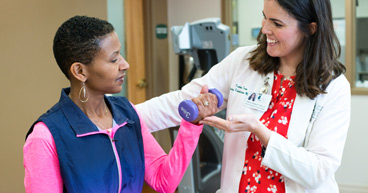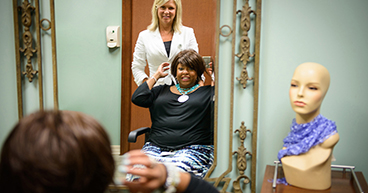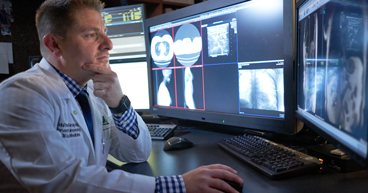


719 Posts

May 8, 2019
Physical therapy a critical component while recovering from breast cancer surgeryMany patients who undergo surgery often see a physical therapist as part of their recovery plan, especially if the procedure involved arms, legs or parts of the body that move or regulate movement.

May 1, 2019
Tips for managing the emotional and intellectual side effects of cancerThe side effects of cancer aren’t just physical, but often impact how patients feel and, sometimes, think. Here are some tips for how to manage grief, depression, difficulty concentrating and other cancer-related challenges.

April 24, 2019
Are certain cancers becoming more common?Some types of cancer are increasing in prevalence, and experts are working to understand what is causing the uptick and how to treat patients.

April 15, 2019
What to know when choosing sunscreenMore than 3 million Americans develop skin cancer every year, making it the most common cancer in the United States. If you want to avoid adding to that statistic, it helps to know the truth behind sun protection. Here are the facts about five common myths to help you choose how to reduce your risk.

April 10, 2019
New techniques aiding in the fight against lung cancerThanks in large part to improvements in diagnostics and treatments, thousands of people are surviving lung cancer. The key is to catch it early, when the survival rate is much higher. Still, most cases are not diagnosed until advanced stages, which makes awareness initiatives around early detection efforts all the more important.

April 3, 2019
Cancer patients not immune from opioid addictionWhile media coverage surrounding opioid misuse in the cancer patient population is sparse, research does indicate that cancer patients are not immune to addiction. It is also clear that opioid prescribing rates among cancer patients are substantially higher than those of other patients.

March 27, 2019
Tips for managing the physical side effects of cancerManaging the side effects of cancer doesn’t always require medications. In fact, many times, lifestyle-related changes may help.

March 13, 2019
Lifestyle changes that may reduce your risk of cancerStudies reported by the National Institutes of Health have found that at least 75 to 80 percent of cancers in the United States may be prevented by lifestyle changes. Here are some steps you can take to decrease your risk of developing cancer.

March 8, 2019
5 breakthroughs in cancer detection and treatmentCancer treatment and detection has progressed in leaps and bounds since 3000 B.C., when Ancient Egyptians concluded there was no way to treat the disease. Advances have particularly grown over the past couple of decades. Daniel Nader, DO, FCCP, FACP, Chief of Staff at our Tulsa hospital, outlines five recent innovations as the treatments to watch out for.
Guidelines
The information contained in this blog is not intended nor implied to be a substitute for professional medical advice. Always seek the advice of your physician or other qualified health provider prior to starting any new treatment or with any questions you may have regarding a medical condition. Nothing contained in the blog is intended to be used for medical diagnosis or treatment of any illness, condition or disease.